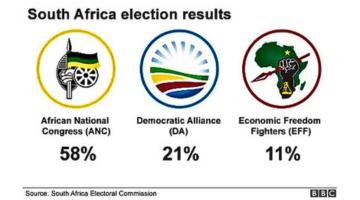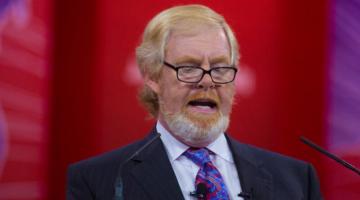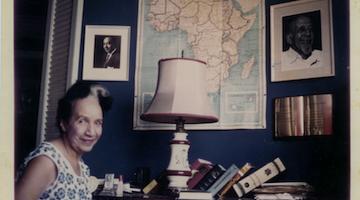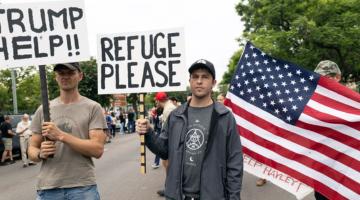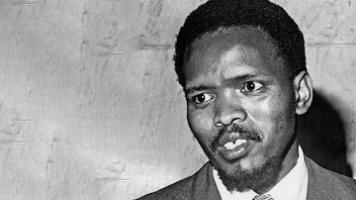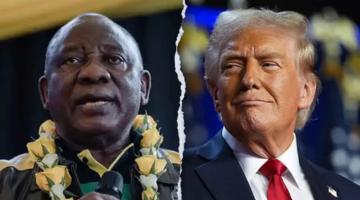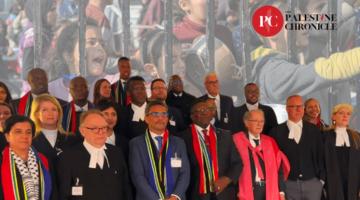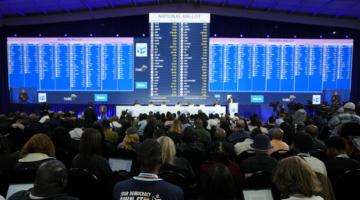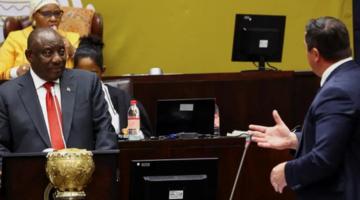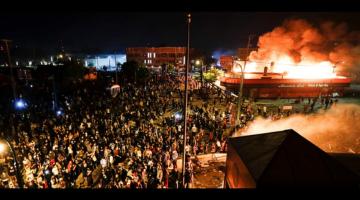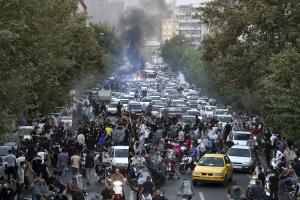F.W. de Klerk: Requiem for a Racist Murderer
F.W. de Klerk was the last apartheid president of South Africa. But remnants of that system remain, and the struggle continues to completely erase the legacy of apartheid criminality.
Frederik “F.W.” de Klerk, the white supremacist, mass murderer and apartheid’s last president died in South Africa on November 11, 2021 at his home in the Fresnaye area of Cape Town. He succumbed to cancer at the age of 85.
de Klerk unleashed a barbaric and brutal war against Black people in South Africa to maintain white economic power and racial segregation. His legacy continues in the neo-colonial patterns of violence and white economic control in the country.
He worked in collusion with South African partners and ushered in the post-apartheid era neo-colonialism. He provided a pragmatic strategy that allowed for the transition from apartheid to neo-colonialism, thus protecting western investments and undergirding white supremacy. The result was a continuation of high levels of Black poverty, mortality rates, and hopelessness. For that shining achievement on behalf of western capital, he was awarded the Nobel Peace Prize along with the late Nelson Mandela, the first post-apartheid president.
In the early 1990s, de Klerk, as state president and leader of the racist National Party, negotiated with Mandela and the African National Congress (ANC). However, de Klerk’s realpolitik strategy was to murder Black South Africans through a vicious campaign using homicidal mercenaries that attacked unarmed civilians in Black townships. He cynically described the violence as “Black on Black” violence. The apartheid government, in a last ditch effort to maintain power, funded a Zulu nationalist party, the Inkatha Freedom Party, as South Africa’s defense forces provided the group with funds and training.
Appearing on the South African Broadcasting Corporation, de Klerk refused to concede the obvious, that apartheid was a crime against humanity. “Genocide is a crime. Apartheid cannot be, that’s why I’m saying this, cannot be, for instance, be compared with genocide. There was never genocide,” Mr. de Klerk said. “Many people died, but more people died because of Black-on-Black violence than because of apartheid.”
When de Klerk was quoted as saying that apartheid was not a crime against humanity, Julius Malema, leader of the Economic Freedom Party (EFF) and Member of Parliament, refuted his remarks, even condemning the government for welcoming him to Parliament. Malema was not the only one incensed. Even neo-Liberal politicians, such as former president Thabo Mbeki spoke out: “He did not know that there is a legal document in international law which says apartheid was a crime against humanity,” TimesLIVE reported : “I want to send him the convention so that he knows that there is an international convention which says apartheid is a crime against humanity. That is how we discussed it.”
President Cyril Ramaphosa, who led negotiations on behalf of the African National Congress, yet always the loyal supplicant of the West, shamefully lauded Mr. de Klerk’s “key role in ushering in democracy” in South Africa.
In an act characteristic of de Klerk’s political career, he refused to provide closure to family members whose loved ones were murdered by state police. Among the secrets de Klerk took to his grave is information about the murders of the “Cradock Four,” four activists killed in 1985 by anti-apartheid security forces in last years of apartheid. “He takes all of that knowledge with him, and it deprives us of the truth and closure of the deaths of the Cradock Four,” said Lukhanyo Calata, the son of one of those activists.
Michael Lapsley, an Anglican priest and anti-apartheid activist who lost both of his hands when he opened a letter bomb sent by the apartheid regime’s security forces in 1990 lamented, “If he’d said, ‘I apologize and this is what I am now going to do with my assets, with my foundation, this is how I am going to speak up for the people who were the victims on my watch, I will account for my part’ — but there was nothing of that at all.”
Hours after de Klerk’s death, his foundation released a video statement. “In this last message, I repeat, I without qualification apologize for the pain and the hurt and the indignity and the damage apartheid has done to Black, brown and Indians in South Africa.”
EFF leader Julius Malema was unimpressed with the contrition and threatened to lead protests if de Klerk was given a state funeral. He later tweeted,"Thank you God."
At a time when statues to racist murderers are being removed from the public space across the world, it is not the time to erect a new monument to F.W. de Klerk, whose rightful place in history is among the worst mass murderers of all time.
Dr. Marsha Adebayo is author of the Pulitzer Prize nominated: No FEAR: A Whistleblowers Triumph over Corruption and Retaliation at the EPA. She worked at the EPA for 18 years and blew the whistle on a US multinational corporation that endangered South African vanadium mine workers. Marsha's successful lawsuit led to the introduction and passage of the first civil rights and whistleblower law of the 21st century: The Notification of Federal Employees Anti-discrimination and Retaliation Act of 2002 (No FEAR Act). Marsha was inducted into the Maryland Women’s Hall of Fame, March 2017. She is one of the hosts of Pacifica’s WPFW FM – What’s at Stake radio show.

